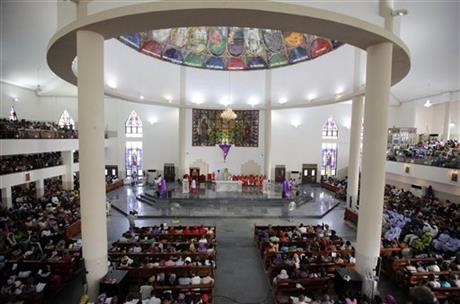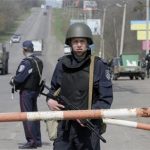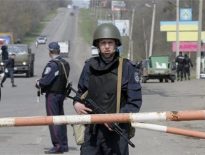LAGOS, Nigeria (AP) — With little to celebrate, Nigerians marked Easter Sunday with heightened security against a spreading Islamic uprising, mourning the deaths of at least 75 bomb blast victims and fearful of the fate of 85 abducted schoolgirls.

The homegrown terrorist network Boko Haram on Saturday claimed responsibility for last week’s rush-hour explosion at a busy bus station in the capital, Abuja, and threatened more attacks.
We are the bombers … yes we are the bombers; if you really want to know who did it, let me tell you now, it was Shekau that did it, leader Abubakar Shekau boasts in a new video.
He taunts Nigeria’s President Goodluck Jonathan, saying: Look at us, we are right within your city (Abuja) and you don’t even know how to find us. Let me tell you now, I am here very close to you, I dare you to get me, if you can.
Nigeria’s military twice have claimed that Shekau was dead, only to have him resurface in a video. The United States has placed a $7 million ransom on his head.
At church services around the country, Nigerians mourned victims of four attacks in three days last week.
At the Vatican, Pope Francis prayed for a halt to the brutal terrorist attacks in parts of Nigeria.
Government should be more sincere in handling the security and insurgency problems, Okeoghene Eboibi, a 45-year-old polytechnic lecturer in southern Delta state told The Associated Press.
He was referring to politicization of the 5-year-old Islamic uprising that has the two main political parties accusing each other of backing the terrorist network as the country gears up for elections in February 2015. The attacks also undermine government and military claims that an 11-month-old state of emergency in three northeast states covering one-sixth of the country has been contained the extremists. Eboibi prayed that God give us the grace to live together peacefully.
But Chidozie Iyoke, a 35-year-old unemployed laborer whose leg was injured in the bombing, said it might be better if people went back to their places of origin. Africa’s most populous nation of some 170 million people is divided almost equally between Muslims living mostly in the north and Christians whose homes are predominantly in the south.
President Jonathan vowed there will be no breaking apart of Nigeria, which in January celebrated the 100th anniversary of the amalgamation of north and south, under British colonizers. As a nation, we are having tribulation, but surely we have hope. Surely we shall overcome this tribulation, the Christian leader told guests visiting him on Easter Sunday. Boko Haram will not disintegrate this country! … Even those who think this country will be divided into north, south or east and west, we will not.
Nigeria has stayed together despite a civil war in the late 1960s to create a separate nation in the east called Biafra. A million people died, mostly of famine in the defeated east.
Jonathan noted that after the bombing, Nigerians of all religions and classes came together to evacuate the wounded before security forces arrived, and citizens responded to a call for donations by giving more blood than was needed.
The Nigeria Police High Command appealed to citizens to help with security by removing cars from around churches and mosques, keeping flower beds clear of trash, discouraging hawking and making conscious efforts to know fellow congregants to make it easier to know who is a stranger in their midst.
On social media, the Nigerian hashtag #CitizenSolutionToEndTerrorism was trending with scores of suggestions, including one that reached to a root cause of extremism, saying provide jobs, take care of basic needs, and let them see reason to live.
Despite the country’s wealth, endemic corruption keeps 70 percent of Nigerians living below the poverty line, and the northeast suffers most with youth unemployment estimated at 80 percent.
Acknowledging the inequity, Jonathan has promised a massive development program in the north but only once the insurgency is halted.
Police officers guarded strategic installations and manned checkpoints searching cars in Abuja on Sunday but security forces were absent from the scene of the abductions at Chibok, a remote northeast town where more than 100 girls and young women were kidnapped from a school hours after Monday’s bombing. Borno state education commissioner Musa Inuwo Kubo said Friday he was forced to send the 44 students who have been accounted for to homes all over the state, because there was no security at the school or in the town.
Confidence in the military was further eroded when the Defense Ministry claimed Wednesday that soldiers had freed all but eight of the girls — only to retract the statement on Thursday. Eighty-five are still missing, Kubo said.
The military has said it has the extremists on the run with near-daily air bombardments of hideouts in forests and caves, but the growing toll tells a different story: more than 1,500 people have been killed this year alone, compared to an estimated 3,600 between 2010 and 2013.
___
Associated Press writers Bashir Adigun in Abuja, Nigeria and Hilary Uguru in Warri, Nigeria, contributed to this report.





